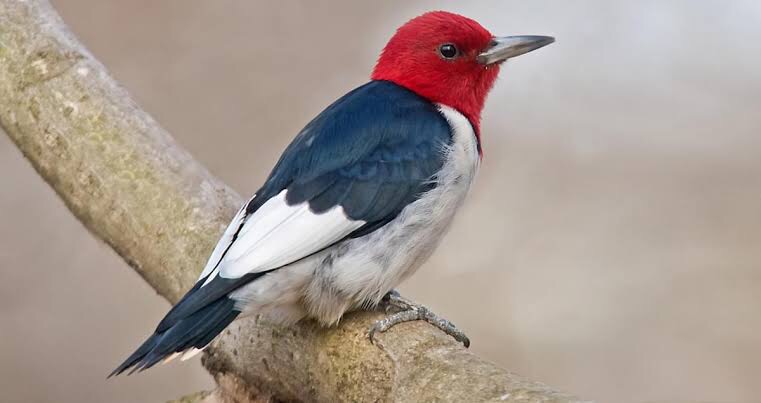I haven’t written anything yet in 2026 because I’ve been too depressed and angry about what’s going on in our country and world to muster enough energy to think, let alone write. I knew I am not alone in those feelings, but it felt strangely comforting when I read these words this morning from one of my heroines in the faith, Nadia Bolz-Weber. Nadia wrote, “I woke up wanting to write something that might be of help right now and I’m all tapped out. I got nothing.” She shared instead some modern Beatitudes she had written 10 years ago which were helpful and worth hearing again.
Fortunately for me I agreed weeks ago to preach this Sunday at a local retirement community, and that commitment forced me to wrestle with my faith and my doubts, and here’s what the Spirit has led me to prepare for that worship service.
When I told a friend I was preaching here at 3 pm he said, “Isn’t that nap time for old folks?” If it is for you we’ll wake you when we’re done! And then ironically shortly thereafter I saw an interesting article about something many of us remember from childhood. How many of you remember pulling out your rug or blanket and lying down in kindergarten while soothing music played on the record player?
The article is called “When We Taught Children How To Rest – And Then Forgot It Mattered.” I don’t know the author,but he or she makes some important points I want to share with you.
“For millions of children growing up in the 1950s, ’60s, and early ’70s, this ritual was as essential to kindergarten as finger paint and the alphabet. It wasn’t filler. It wasn’t babysitting.
It was the lesson. Stillness Was Once Part of the Curriculum
Educators believed something we’ve slowly forgotten: young children need quiet.
Not just sleep—but stillness.
A pause where feelings could settle. A space where overstimulated minds could wander safely.
The science agreed. Children’s brains and nervous systems were still under construction. Rest wasn’t a reward. It wasn’t optional. It was developmental maintenance.
Then We Decided to Hurry. By the 1970s and ’80s, something shifted.
Kindergarten stopped being about socialization and curiosity and started being about readiness.
Pre-reading. Early math. Staying on track. Getting ahead.
Schedules tightened. Testing crept younger. Parents worried about falling behind before childhood had even properly begun. Naptime began to feel inefficient. Unproductive.
A luxury we could no longer afford.
And we act surprised when childhood anxiety soars. Naptime wasn’t just about sleep. It taught us that rest has value, that quiet has purpose, that you don’t have to be productive every minute to be worthy…… We once dimmed the lights, put on a record, and gave twenty small people permission to just be. Maybe it’s time we remembered how.”
A few weeks ago when we had that lovely warm October God reminded me of that wisdom. After worship I spent some time praying in the beautiful outdoor chapel that we have at Northwest UMC, and the words that came to me were “Be still and know that I am God.” I have meditated on those words many times in the days and weeks since, seeking the balm they offer in the chaotic world we inhabit just now.
I am embarrassed to admit that I didn’t remember where those words come from in Scripture until I googled them. They are of course in verse 10 of the Psalm we just read, and the opening verses set the scene powerfully for having faith to be still when life is literally crumbling around us.
The psalm begins with these words:
“1 God is our refuge and strength,
a very present help in trouble.
2 Therefore we will not fear, though the earth should change,
though the mountains shake in the heart of the sea,”
Scholars believe those words were written as the armies of Assyria were besieging the city of Jerusalem in 701 BCE. Many of us can relate today. We feel under siege from bodies that are feeling the slings and arrows of the aging process. Or that the very values we thought our country was founded on are under attack, and we feel helpless to do anything about it.
How can we not wonder if God really is our help and refuge? Where is God’s help in this all too real time of trouble? As I typed those words originally for a blog I write, and I’m not making this up, a notification popped up on the top of my iPad screen that said “Don’t Stop Believein’!” “Don’t Stop Believin’!” I literally looked around to see if Big Brother or someone was reading over my shoulder! It was spooky, but even more real than the message I heard that day in the chapel that said to be still and know I’m God.
As it turns out that message was a notification on my iPad advertising that the rock band Journey who sing “Don’t Stop Believin’” is coming to do a concert in Columbus next summer, but the timing of that message seemed way too relevant to be just a coincidence.
And that is what the psalmist is saying to the besieged, hopeless folks in Jerusalem surrounded by the mighty armies of King Sennacherib of Assyria. Don’t stop believing!
God says, be still and know I am God, which implies the rest of that sentence – I’m God and you’re not. So trust me. I got you out of Egypt and through the wilderness, and I’ll get you out of this mess too. But like us the people of Israel don’t always get it. In my imagination I can picture God, like any frustrated parent, wanting to say, “Shut up and Listen!”
Every age has its moments of siege. “A Mighty Fortress” that we sang earlier was written based on this Psalm by Martin Luther in about 1527-29 when he was under terrible persecution from the Roman Catholic Church and the Holy Roman Empire.
After Luther refused to retract his writings, Pope Leo X issued a papal bull excommunicating him in 1521.
Luther was summoned before the Holy Roman Emperor Charles V and the imperial assembly, where he famously refused to recant his views, leading to his condemnation.
The Edict of Worms (also in 1521)declared Luther an outlaw, banned his writings, and made it a crime to harbor him, with punishment for heresy being burning at the stake.
To protect him, Prince Frederick the Wise of Saxony arranged for Luther to be “kidnapped” and taken to Wartburg Castle for his safety, where he translated the New Testament into German.
Even as Luther was protected, his supporters faced severe repercussions, including loss of jobs, imprisonment, and execution, as persecution against Lutherans intensified across the Holy Roman Empire. And through all of this people sang “A Mighty Fortress is Our God” which became known as the Battle Hymn of the Reformation.
The most powerful words in that hymn for me are, “The body they may kill, God’s truth abideth still.” That was true in 1528; it’s true today; and it will never change. That is what it means to be still and know that God is God. God’s in charge and will prevail in God’s good time – not ours. And because of that we can still pull out our blankets, put on some soothing music and sleep in the heavenly peace of innocent five-year-olds.
Benediction:
Because of God’s ultimate rule of the whole universe, no matter how bad things seem at this or any moment, personal or in history, we can“Be still, and know that I am God! I am exalted among the nations; I am exalted in the earth.” The Lord of hosts is with us;
the God of Jacob is our refuge.” Today, tomorrow, and Forever. Amen






